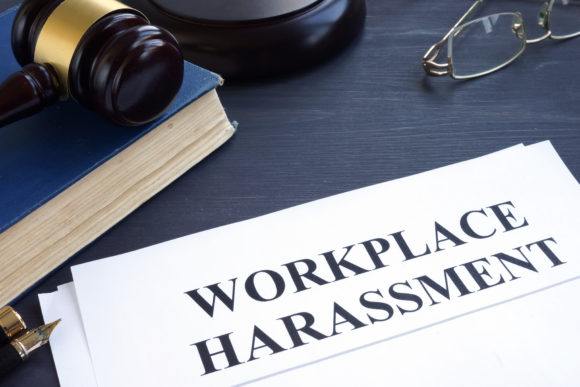Although a black maintenance worker suffered “intolerable racial harassment” from co-workers at a Kentucky manufacturer, the employer took steps to investigate and end the practices and cannot be held responsible for civil rights violations, a federal appeals court decided Monday.
Title VII of the U.S. Civil Rights Act “requires a reasonably prompt response, not a perfect response” from the employer, a three-judge panel of the 6th U.S. Circuit Court of Appeals found in Ronald Burns vs. Berry Global Inc. “Because no reasonable juror could find Berry acted unreasonably or in a deliberately indifferent manner, we affirm the district court’s grant of summary judgment.”
The publicly traded Berry is one of the world’s largest manufacturers of plastic packaging, tapes and other household and industrial products. Ronald Burns began working at the firm’s Nicholasville, Kentucky, plant in 2018, and soon was subjected to racially offensive and threatening notes and actions, including a noose left in his toolbox, the court decision explained.
Burns brought the actions to the company’s attention and human resource employees investigated, going so far as to review hours of security camera footage to determine which worker was the culprit. The company suspended one worker and told Burns that another was under suspicion. Berry also interviewed workers and conducted a limited amount of employee training on respect and non-harassment.
Burns, who later found another job and left Berry, filed suit in 2020, arguing that the company did not take enough corrective actions and ignored signs that a supervisor was involved. Berry disputed the claim that the alleged harasser was, in fact, a supervisor.
Berry’s attorneys asked for summary judgment and the district federal court granted it. The supervisor standard of review did not apply in this case, the district court found, and under the coworker standard of review, Berry’s response was adequate.
The 6th Circuit judges agreed.
“To hold an employer liable for the harassing conduct of an employee’s coworker, the employee must show the employer’s response to the harassment ‘manifested indifference or unreasonableness in light of the facts the employer knew or should have known,'” Judge Julia Gibbons wrote for the panel, quoting from previous court decisions.
Case law has held that the plaintiff must show the employer “tolerated or condoned the situation or that the employer knew or should have known of the alleged conduct and failed to take prompt remedial action,” Gibbons wrote. She added that an employer’s response is generally considered adequate if it is “reasonably calculated to end the harassment.”
Also, Berry’s decision to allow its human resource generalist to continue the investigation, rather than an outside attorney or investigator, was not unreasonable, the court found.
In the end, no one was fired or charged in the racial incidents at the Berry plant. The company said not enough evidence could be found to prove any workers’ actions.
“Ronald Burns suffered intolerable racial harassment at work on account of his race,” the 6th Circuit said. “His employer, however, cannot be held legally responsible under the coworker standard of review. Berry’s response, though perhaps imperfect, was legally adequate under the requirements of Title VII and its progeny.”
Topics Kentucky Manufacturing
Was this article valuable?
Here are more articles you may enjoy.



 Chubb CEO Greenberg on Personal Insurance Affordability and Data Centers
Chubb CEO Greenberg on Personal Insurance Affordability and Data Centers  Maine Plane Crash Victims Worked for Luxury Travel Startup Led by Texas Lawyer
Maine Plane Crash Victims Worked for Luxury Travel Startup Led by Texas Lawyer  Uber Jury Awards $8.5 Million Damages in Sexual Assault Case
Uber Jury Awards $8.5 Million Damages in Sexual Assault Case  Allstate Doubles Q4 Net Income While Auto Underwriting Income Triples
Allstate Doubles Q4 Net Income While Auto Underwriting Income Triples 

